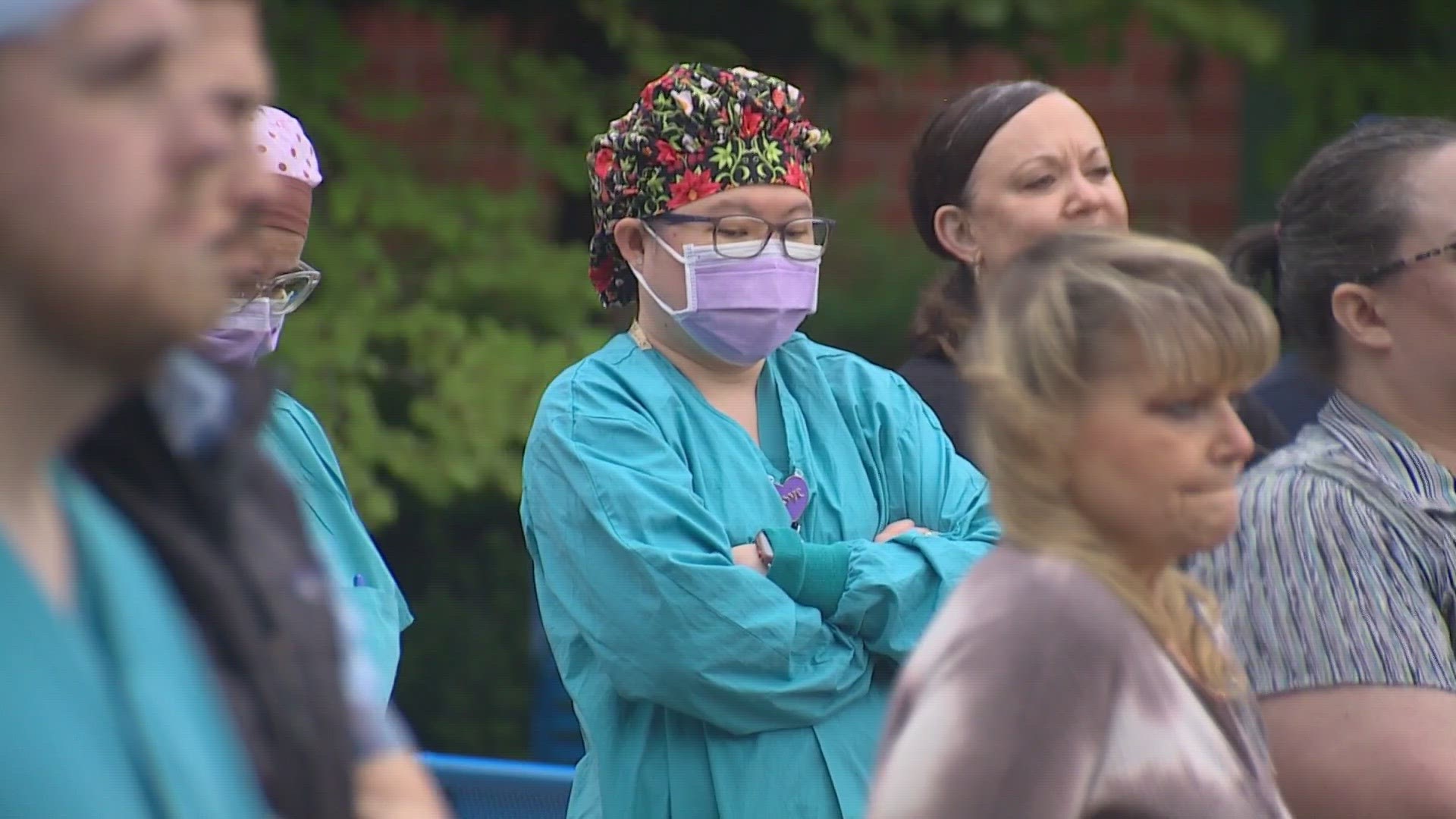SEATTLE — As the U.S. officially ends its emergency COVID-19 order on May 11, western Washington nurses reflected on the challenges of the industry during the course of the pandemic and looked ahead to the future of nursing.
This week marked Nurses Appreciation Week and hospitals across Puget Sound celebrated nursing staff for all that they do for patient care.
"It's been a bit of a roller coaster," said Bryan Benitez, a charge nurse at Providence Swedish Hospital's Cherry Hill campus.
Benitez started at Swedish as a nurse in 2019, pre-pandemic, and witnessed how the healthcare system has been impacted by COVID-19's arrival.
"It definitely changed the way we approached our care," Benitez said.
Healthcare workers, including nurses, dealt with a slew of issues, including a lack of protective equipment, a shortage of staff and later, push-back on restrictions.
"We did see the backlash with masking with a lot of the health restrictions that were placed on our community. But I would say on the whole, our nurses handled it in a way that we've always handled it. We just carried on," Benitez said.
Renee Rassilyer-Bomers is Chief Nursing Officer at the Swedish Cherry Hill campus and called nursing the "cornerstone of health care."
She said nursing shortages were already anticipated well into 2025 and the pandemic only expedited that.
"We're seeing that shortage much sooner," Rassilyer-Bomers said, adding hospitals have tackled recruitment and retention challenges through union negotiations to increase wages, mental health and well-being resources for their staff, and investing in schools to inspire more students to become nurses.
In a landscape where staffing is short across the healthcare sector, Rassilyer-Bomers said nurses, including nurse practitioners, are increasingly part of providing patient care.
"So we're trying to find models where we are maximizing our skill set to care for more patients with fewer resources. Nurses are a huge piece of that; nurse practitioners are definitely that," she said.
Nursing staff like Benitez, meanwhile, said they are asking for some understanding among patients.
"From our side of the bed, we know that we are seeing you at the worst," Benitez said.
As for future recruiting and retention efforts, the state budget that passed in the Legislature this year includes funding for programs designed to grow the healthcare workforce totaling $24 million, according to the Washington State Hospital Association.
A portion of that money will go toward multi-state nurse licensing and increasing nursing slots in the community college system.
State of nursing post-pandemic: HealthLink
Western Washington hospitals celebrate nursing staff who are reflecting on the challenges of the past three years, post-pandemic.

